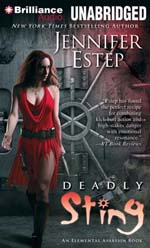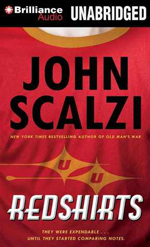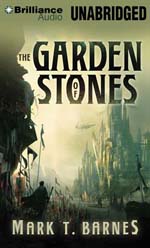
 Alien Honor (A Fenris Novel #1)
Alien Honor (A Fenris Novel #1)
By Vaughn Heppner, Read by Jeff Cummings
Publisher: Brilliance Audio
[UNABRIDGED] – 11 hours
Themes: / interspecies slavery / telepathic FTL spaceships / galactic colonizing / Philosoraptors / science fiction / space / aliens /
Publisher summary:
2457 AD. The longest space voyage in history has begun: 230 light years from a ravaged Earth to the pristine star system of New Eden — a beacon of hope following the Doom Star days. Aboard the ship are human colonizers, the Space Navy, fierce “Monitors” once bred to fight Cyborgs, and four “Specials” — humans with psionic abilities, capable of ripping holes in space to jump vast distances. But one Special has his own agenda and when an alien presence makes an offer he can’t refuse, the entire mission takes a deadly turn. Cyrus Gant, a former Dust-dealing gang member from Earth’s subterranean slums, is onto the renegade Special. And while his psi powers aren’t as strong as he might like, Cyrus’s street smarts more than make up for this seeming disadvantage. This will be crucial, because as the ship makes the final, frightening leap toward New Eden, Cyrus is everyone’s last hope for survival.
Alien Honor is Vaughn Heppner’s opening book in the Fenris series, which is set in 2457 AD. Humans are using telepaths to power FTL (faster-than-light) spaceships. The majority of the book focuses on Cyrus Gant, a gritty gang boss who was plucked out of the slums and trained in a special program for the development of telepathic humans. Earth sends a colonizing ship 230 light years to the New Eden star system with hope for a new beginning. Of course, things go horribly wrong and we encounter dinosaurs in space posing as philosopher-kings, as one does when venturing into space.
Vaughn Heppner is ambitious. SF is a genre known for tackling issues of social inequality set against an alien backdrop as a means of providing alternative perspective. We encounter interspecies slavery, telepath typecasting, and military stereotypes reinforcing the old misguided mantra of stronger=bigger=better. Unfortunately, Heppner’s near continual use of contemporary language/slang became an increasing source of irritation. The story is set over four hundred years in our future, yet Heppner has characters dropping insults like “prick” and “bastards.” Anytime I stumbled across characters using present-day language and contemporary idioms, it yanked me out of Heppner’s world.
Jeff Cummings narrates the audiobook and does a fair job. As a reader, he never becomes bigger than the story. There were times when I felt his delivery was overdramatic and slower in pace than I am accustomed to, but this is minor.
Personally, I felt things picked up nicely when the dinosaurs came on the scene. I mean come on, space Velociraptor cast as philosopher-king. You know what that means, right? Philosoraptor, YEAH-BABY!!!
And yes, I’m a proud owner of a Philosoraptor t-shirt.
Posted by Casey Hampton.
 Deadly Sting (Elemental Assassin #8)
Deadly Sting (Elemental Assassin #8) Redshirts
Redshirts In Enemy Hands (Honor Harrington #7)
In Enemy Hands (Honor Harrington #7)

 The Garden of Stones (The Echoes of Empire #1)
The Garden of Stones (The Echoes of Empire #1)